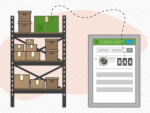Trust is the cornerstone of any marketplace; without it, transactions simply won’t happen.
This raises an important question: Should platforms like Amazon be held accountable for the products sold by third-party sellers on their marketplace? The answer is a resounding yes.
Historically, marketplaces have shied away from taking responsibility for the goods sold within their domains. In the early 2000s, for example, eBay claimed it was merely a facilitator of transactions, disclaiming any responsibility for the actual products traded. However, this stance has been challenged legally.1
A notable instance occurred in 2008 when luxury goods conglomerate LVMH successfully sued eBay for allowing counterfeit items, including Louis Vuitton and Dior products, to be sold on its platform, leading to a significant legal settlement.
Further scrutiny came in 2019 when The Wall Street Journal reported instances of Amazon third-party sellers repurposing products found in trash, a practice Amazon has since explicitly prohibited.2
More recently, in 2022, Etsy faced criticism for permitting the sale of counterfeit goods by drop shippers on its site.3
Currently, Amazon is under the spotlight again as regulators propose classifying it as a distributor, a move influenced by the Consumer Product Safety Act in the U.S., which holds retailers and distributors accountable for the safety of their products, not just manufacturers. This reclassification would align Amazon’s safety standards and legal obligations with those of physical retailers and distributors, potentially leading to lawsuits and product recalls.4
- Arjun Kharpal, LVMH, eBay settle legal battle over fake goods ↩︎
- Khadeeja Safdar, Shane Shifflett, and Denise Blostein, You Might Be Buying Trash on Amazon Literally ↩︎
- Dropshipping Has Ruined Etsy ↩︎
- Dana Mattioli and Khadeeja Safdar, Should Amazon Be Responsible for Everything It Sells and Ships? A U.S. Agency Will Soon Decide ↩︎

About the Author
Jagath Narayan is the CEO and co-founder of Ordoro, the #1 ecommerce platform for retailers growing from 10 to 10,000 orders/day. Follow him on LinkedIn to learn more about entrepreneurship and ecommerce.


